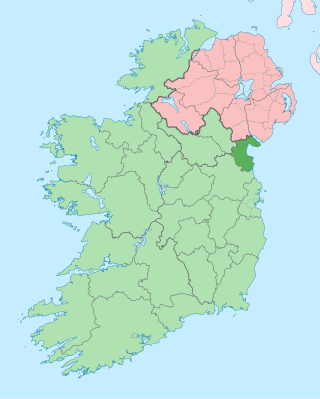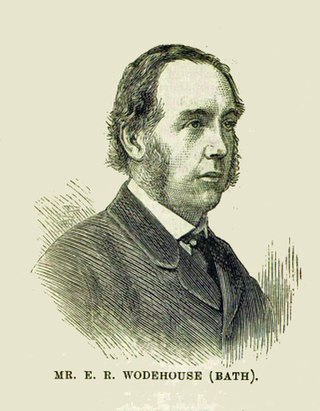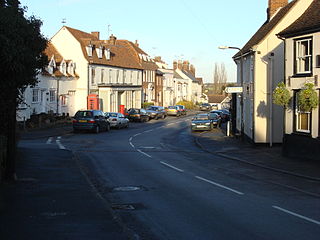This article includes a list of general references, but it lacks sufficient corresponding inline citations .(April 2013) |
Philip Callan (1837 - 13 June 1902) was an Irish Member of Parliament.
This article includes a list of general references, but it lacks sufficient corresponding inline citations .(April 2013) |
Philip Callan (1837 - 13 June 1902) was an Irish Member of Parliament.
Callan was born in Cookstown House Ardee in 1837 and was the son of Owen Callan. [1] He studied law at Trinity College Dublin, and also at the King's Inns as can be seen in his papers for Kings Inns Admittance.[ citation needed ] He was called to the Bar in Dublin in 1865 and shortly after was also called to the English Bar.[ citation needed ]
Callan was elected to Parliament as a Liberal, for the Borough constituency of Dundalk, in 1868. Re-elected as a Home Ruler in the 1874 general election, he was elected also for County Louth. He chose to continue sitting for the Dundalk seat. In 1880, however, he ran for the Louth constituency instead and was elected, remaining as MP until the 1885 general election. He tried, unsuccessfully, to be re-elected in 1892 and 1896. [2]
Callan died, from heart disease, at his residence in Dublin on 13 June 1902. [3]
When in 1829 Catholics were admitted to parliament, his father, Owen Callan of Ardee, had been the first Catholic Representative of County Louth since the Battle of the Boyne. Mr. Philip Callan was devoted to Butt
— F. Hugh O'Donnell, A History of the Irish Parliamentary Party Vol. 1, Longmans, Green & Co. 1910
Walter Ernest Everard Callan, son of Philip Callan MP also studied Law and attended Kings Inns in Dublin. He was called to the Bar in 1903. Walter was private secretary to the last Viceroy in Ireland and continued in the civil service, serving in Australia as Private Secretary to the Governor General. Papers to this effect can be obtained from the National Library of Australia and correspondence from and to Mr Walter Callan can be seen in Prime Minister Deakins' Papers which are also available from the National Museum of Australia. Walter Callan went on to become Senior Counsel at the Irish Bar and resided at Baggot Street, Dublin until his death.

Dundalk is the county town of County Louth, Ireland. The town is on the Castletown River, which flows into Dundalk Bay on the east coast of Ireland. It is halfway between Dublin and Belfast, close to the border with Northern Ireland. It is surrounded by several townlands and villages that form the wider Dundalk Municipal District. It is the seventh largest urban area in Ireland, with a population of 43,112 as of the 2022 census.

County Louth is a coastal county in the Eastern and Midland Region of Ireland, within the province of Leinster. Louth is bordered by the counties of Meath to the south, Monaghan to the west, Armagh to the north and Down to the north-east, across Carlingford Lough. It is the smallest county in Ireland by land area and the 17th most populous, with just over 139,100 residents as of 2022. The county is named after the village of Louth. Louth County Council is the local authority for the county.
County Louth, otherwise known as Louth County or Louth, is a former parliamentary constituency in Ireland, which was represented in the House of Commons of the Parliament of the United Kingdom. From 1801 to 1885 it returned two Members of Parliament (MPs), and one from 1918 to 1922.
Dundalk was a parliamentary borough constituency in Ireland, which returned one Member of Parliament (MP) to the House of Commons of the Parliament of the United Kingdom. It was an original constituency represented in Parliament when the Union of Great Britain and Ireland took effect on 1 January 1801, replacing the Dundalk constituency in the Parliament of Ireland.
North Louth was a parliamentary constituency in Ireland, which returned one Member of Parliament (MP) to the House of Commons of the Parliament of the United Kingdom, elected on a system of first-past-the-post, from 1885 to 1918. Prior to the 1885 general election and after the dissolution of Parliament in 1918 the area was part of the Louth constituency.
South Louth was a parliamentary constituency in Ireland, which returned one Member of Parliament (MP) to the House of Commons of the Parliament of the United Kingdom, elected on a system of first-past-the-post, from 1885 to 1918. Prior to the 1885 general election and after the dissolution of Parliament in 1918 the area was part of the Louth constituency.
John Leslie Foster, FRS was an Irish barrister, judge and Tory Member of Parliament (MP) in the United Kingdom Parliament. In 1830 he was appointed a Baron of the Court of Exchequer of Ireland.
Ardee was a constituency represented in the Irish House of Commons from 1378 to 1801.

Edmond Robert Wodehouse was an English Liberal and Liberal Unionist politician who sat in the House of Commons from 1885 to 1906.

Richard Hazleton was an Irish nationalist politician of the Irish Parliamentary Party. He was Member of Parliament (MP) for North Galway from 1906 to 1918, taking his seat in the House of Commons of the United Kingdom of Great Britain and Ireland.

Mark Dearey is an Irish Green Party politician who served as a Senator from 2010 to 2011, after being nominated by the Taoiseach.

William Torrens McCullagh Torrens was an Irish Liberal politician, who sat in the House of Commons for various constituencies between 1848 and 1885.

Philip Tisdall SL was an Irish lawyer and politician, who held the office of Attorney-General for Ireland. He was for many years a leading figure in the Irish Government.
The High Sheriff of Louth was the Crown's representative for County Louth, a territory known as his bailiwick. Selected from three nominated people, he held his office for the duration of a year. He had judicial, ceremonial and administrative functions and executed High Court Writs.
The 1874 County Louth by-election was fought on 8 April 1874. The byelection was fought due to the double Election, chose to sit for Dundalk of the incumbent Home Rule MP, Philip Callan. It was won by the Home Rule candidate George Harley Kirk.
Sir John Everard was an Irish barrister, politician and judge. He was notable as the last Irish judge until the reign of James II to openly profess the Roman Catholic faith. His religious beliefs eventually led to his enforced resignation from the Bench in 1607.
Tristram Edward Kennedy was an Irish Liberal, Whig and Independent Irish Party politician, and lawyer.
Robert James Tennent was an Irish Whig politician.

Sir Christopher Sibthorpe was an English-born lawyer who had a distinguished career in Ireland as a judge and politician, and was also a religious writer of some note.